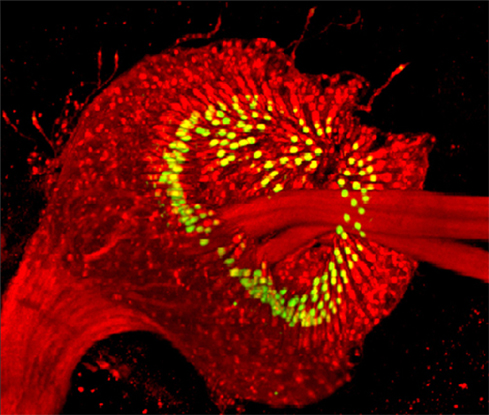We use Drosophila as a model system to study neuronal development, function, and maintenance. To enable and accelerate this research, we have developed many technologies. We are the home of the Drosophila Gene Disruption Project which generates tens of thousands of stocks that are distributed by the Bloomington Drosophila Stock Center and heavily used throughout the global Drosophila community. These methods and reagents have allowed us to  interrogate important components in our research interests. We are currently focusing on the discovery of new human disease genes and elucidating the pathogenic mechanisms associated with mutations in these genes as well as genes that cause neurodegeneration in humans. We, together with the Yamamoto and Wangler labs at Baylor College of Medicine (BCM), are the home of the fly Model Organisms Screening Center (MOSC) of the Undiagnosed Diseases Network (UDN) of the National Institutes of Health. Through collaborations with numerous human geneticists around the world, we are able to uncover the cause for undiagnosed diseases. Moreover, in the past few years, we have made major strides in solving key problems related to both rare neurological pediatric diseases as well as more common diseases such as Friedreich ataxia, Amyotrophic Lateral Sclerosis, Parkinson's Disease and Alzheimer's Disease.
interrogate important components in our research interests. We are currently focusing on the discovery of new human disease genes and elucidating the pathogenic mechanisms associated with mutations in these genes as well as genes that cause neurodegeneration in humans. We, together with the Yamamoto and Wangler labs at Baylor College of Medicine (BCM), are the home of the fly Model Organisms Screening Center (MOSC) of the Undiagnosed Diseases Network (UDN) of the National Institutes of Health. Through collaborations with numerous human geneticists around the world, we are able to uncover the cause for undiagnosed diseases. Moreover, in the past few years, we have made major strides in solving key problems related to both rare neurological pediatric diseases as well as more common diseases such as Friedreich ataxia, Amyotrophic Lateral Sclerosis, Parkinson's Disease and Alzheimer's Disease.